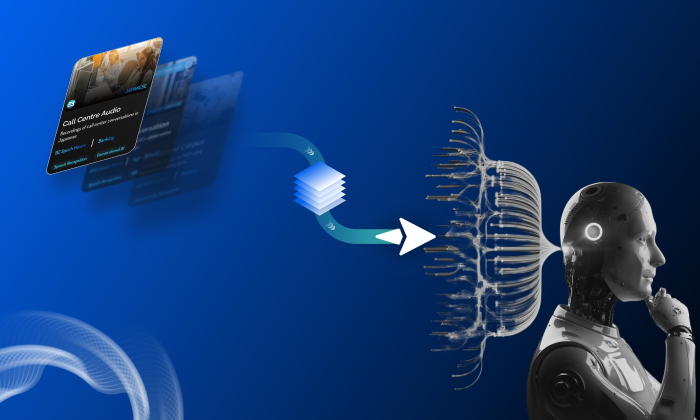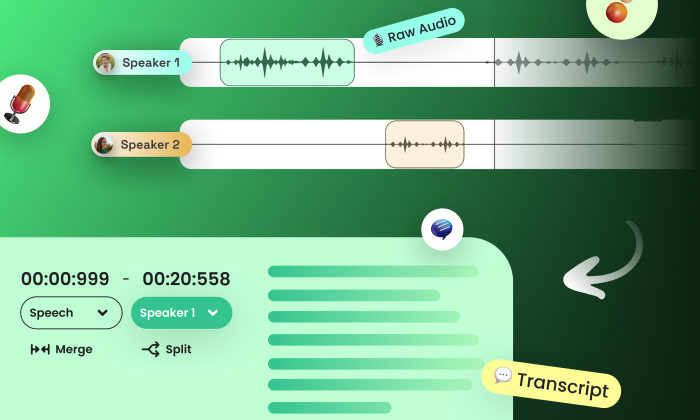Why are voice cloning datasets important for building voice AI models?
Voice Cloning
AI Development
Speech AI
Voice cloning datasets are essential for developing voice AI models, providing the foundational audio data necessary for training and perfecting these systems. Their quality and diversity significantly influence how well voice AI can perform in real-world scenarios, making them a cornerstone in the AI ecosystem.
Why Voice Cloning Datasets Matter
Voice cloning datasets consist of recorded audio samples that capture a speaker's unique vocal characteristics. These datasets are designed to include a wide range of speech patterns, emotions, and contexts, enabling AI systems to replicate not just the sound of a voice but its nuances. By incorporating both scripted and unscripted recordings, they ensure that AI models can learn from various speech styles. This capability is crucial for creating realistic and adaptable voice models used in applications like virtual assistants, gaming, and storytelling.
Ensuring Quality and Diversity
High-quality datasets are recorded in professional environments, typically at 48 kHz with 24-bit depth, to produce clear and lifelike voice models. Diversity in speaker demographics, such as age, gender, accent, and emotional expression, ensures that voice models are inclusive and resonate with a wider audience. For instance, a virtual assistant must understand and communicate effectively with users from diverse cultural backgrounds, which requires a dataset rich in accents and dialects.
Real-World Impacts and Use Cases
Consider a company developing a virtual assistant designed to recognize and respond to emotional cues in customer service settings. A dataset that includes expressive and emotional speech allows the AI to detect and adapt to a user's mood, enhancing interaction quality. Similarly, in the entertainment industry, voice cloning can bring characters to life in video games or audiobooks, creating immersive experiences for users. These applications highlight how diverse and high-quality datasets directly impact usability and effectiveness.
How Quality Datasets Enhance Training
Voice AI models learn by analyzing phonetic characteristics, intonations, and speech patterns present in datasets. This training involves complex algorithms that enhance the model's ability to produce speech that is not only clear but emotionally resonant. Well-annotated datasets provide context for each recording, such as emotional tone or situational cues, which the model uses to generate more contextually appropriate outputs. This process underscores the necessity for precise and comprehensive speech annotation.
Strategic Decisions in Dataset Creation
When assembling voice cloning datasets, teams must balance quantity and quality. While larger datasets provide more training examples, they must be meticulously curated to avoid introducing noise. Ethical sourcing is another critical aspect, ensuring that all speakers give informed consent and that their data is handled in compliance with regulations like GDPR. This ethical approach not only protects contributors' rights but also builds trust in the technology, crucial for its long-term adoption.
Common Challenges and Best Practices
Experienced teams sometimes overlook the need for speaker diversity, leading to biased models that underperform across different demographics. A robust quality assurance process is vital to avoid flaws in audio quality and annotation accuracy, which can compromise model performance. Implementing a multi-layered QA workflow ensures the integrity of the data being used.
Key Takeaways on Voice Cloning Dataset Significance
Voice cloning datasets are vital for developing effective voice AI models. Their quality, diversity, and ethical sourcing shape the capabilities and trustworthiness of these technologies. By understanding the nuances of dataset creation and training processes, teams can build voice AI systems that are advanced, responsible, and inclusive.
For projects requiring domain-specific voice data, FutureBeeAI offers tailored solutions that include high-quality, diverse voice datasets. Our structured, compliant data pipeline supports the development of multilingual and expressive voice systems. Partner with FutureBeeAI to access production-ready datasets that meet your AI goals.
### Smart FAQs
**What types of recordings are typically included in voice cloning datasets?**
Voice cloning datasets usually include both scripted and unscripted recordings. This variety enables AI models to learn from different speech styles and contexts, enhancing their ability to generate natural-sounding speech.
**How do ethical considerations impact the creation of voice cloning datasets?**
Ethical considerations involve obtaining informed consent from voice contributors and complying with data protection regulations. This is crucial for maintaining trust and protecting the rights of individuals whose voices are being used in AI applications.
What Else Do People Ask?
Related AI Articles
Browse Matching Datasets
Acquiring high-quality AI datasets has never been easier!!!
Get in touch with our AI data expert now!








